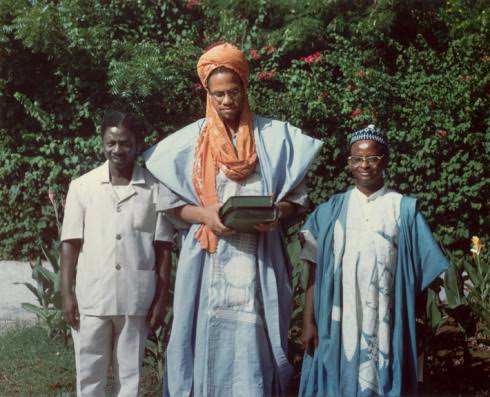The Impact of Malcolm X’s Historic Visit to Ibadan, Nigeria
You’ve likely heard of Malcolm X—it could be through history books, riveting biographies, or even powerful cinematic portrayals of his life. His role as a revolutionary leader in the fight for Black liberation in America is well-documented. However, as a Nigerian, you may not know that he visited Ibadan during his lifetime.
In May 1964, Malcolm X embarked on a significant journey to Ibadan. What drove this journey, and what impact did it have? Here is a look into the significance of his visit, the lessons shared, and its enduring legacy.
Early Life of a Revolutionary
Malcolm Little was born in 1925 in Omaha, Nebraska. His early life was marked by hardship and racial discrimination, and his father, a preacher advocating for Black self-reliance, was killed under suspicious circumstances, leaving the family impoverished. By the time he was a teenager, Malcolm had dropped out of school and turned to a life of crime, which ultimately led to his imprisonment in 1946.
Introduction to Islam and Black Activism
While in prison, Malcolm encountered the teachings of the Nation of Islam (NOI) and its leader, Elijah Muhammad. Embracing Islam, Malcolm X became a passionate advocate for Black pride and self-determination. By the 1950s, he became the NOI’s most prominent spokesman, known for his fiery rhetoric against racial injustice and his call for Black independence from White America.
Breaking Away and Founding the OAAU
By 1964, Malcolm had grown disillusioned with the NOI’s rigid structure and diverging ideological paths. After performing the Hajj, which transformed his views on race, he founded the Organization of Afro-American Unity (OAAU). His mission was clear: unite the struggles of African Americans with those of Africans, promoting global solidarity for Black liberation.
Journey Through Africa
Malcolm X’s visit to Africa in 1964 was part of a broader tour to galvanize international support for the Black freedom struggle in America. His travels took him to several African nations, where he was warmly received, particularly because of his status as a Muslim and a militant advocate for human rights. As noted in his “Letters from Lagos and Accra,” Malcolm emphasized the interconnectedness between African liberation and the African American civil rights movement.
Why Ibadan?

Ibadan, the largest city in West Africa then, was a vital intellectual hub. The University of Ibadan was among the continent’s leading educational institutions, and its active student community must have made it an ideal setting for Malcolm X’s message. Moreover, the city’s historical and cultural significance positioned it as a strategic location for disseminating Pan-African ideas.
Arrival and Reception in Ibadan

Malcolm X arrived in Ibadan and was met with a hero’s welcome. His presence at the University of Ibadan’s Trenchard Hall attracted a large audience of students and faculty, all eager to hear from the revolutionary leader. He was embraced warmly as an American icon and a long-lost African brother returning home.
The Speech That Inspired
During his speech, Malcolm X articulated the urgent need for African nations to support the civil rights struggle in America. He argued that African Americans were part of a global African family and urged African leaders to challenge the United States’ human rights record at the United Nations. His speech served as a clarion call for solidarity between African Americans and Africans, and emphasized shared experiences of oppression and the necessity of collective liberation.
Pan-African Unity
Beyond civil rights, Malcolm X’s speech addressed broader Pan-African issues. He spoke of the need for African nations to unify politically and economically, echoing the ideals of leaders like Kwame Nkrumah. He encouraged young Nigerians to lead the charge in shaping a new, independent Africa that could stand as a beacon of hope for Black people worldwide.
A Name with Profound Meaning
The Muslim Students Society of Nigeria gave Malcolm X the Yoruba name “Omowale,” meaning “the child has come home.” This symbolic gesture marked his return to African roots and was a profound moment in his Pan-African journey. In “Letters from Lagos and Accra,” Malcolm talked about the significance of this recognition, noting the deep emotional impact it had on him. Additionally, the society honored him with an honorary membership. To date, the legacy of Malcolm’s visit lives on, and his ideas continue to resonate and serve as a reminder of the power of global solidarity in the fight for justice.

This article offers fresh perspectives on Malcolm X’s life and legacy! I look forward to reading more from this author in the future 😃